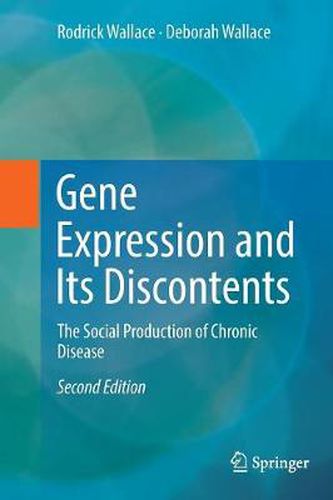Readings Newsletter
Become a Readings Member to make your shopping experience even easier.
Sign in or sign up for free!
You’re not far away from qualifying for FREE standard shipping within Australia
You’ve qualified for FREE standard shipping within Australia
The cart is loading…






This title is printed to order. This book may have been self-published. If so, we cannot guarantee the quality of the content. In the main most books will have gone through the editing process however some may not. We therefore suggest that you be aware of this before ordering this book. If in doubt check either the author or publisher’s details as we are unable to accept any returns unless they are faulty. Please contact us if you have any questions.
This book describes how epigenetic context, in a large sense, affects gene expression and the development of an organism, using the asymptotic limit theorems of information theory to construct statistical models useful in data analysis. The approach allows deep understanding of how embedding context affects development. We find that epigenetic information sources act as tunable catalysts, directing ontogeny into characteristic pathways, a perspective having important implications for epigenetic epidemiology. In sum, environmental stressors can induce a broad spectrum of developmental dysfunctions, and the book explores a number of pandemic chronic diseases, using U.S. data at different scales and levels of organization. In particular, we find the legacy of slavery has been grossly compounded by accelerating industrial decline and urban decay. Individual chapters are dedicated to obesity and its sequelae, coronary heart disease, cancer, mental disorders, autoimmune dysfunction, Alzheimer’s disease, and other conditions. Developmental disorders are driven by environmental factors channeled by historical trajectory and are unlikely to respond to medical interventions at the population level in the face of persistent individual and community stress. Drugs powerful enough to affect deleterious epigenetic programming will likely have side effects leading to shortened lifespan. Addressing chronic conditions and developmental disorders requires significant large-scale changes in public policy and resource allocation.
$9.00 standard shipping within Australia
FREE standard shipping within Australia for orders over $100.00
Express & International shipping calculated at checkout
This title is printed to order. This book may have been self-published. If so, we cannot guarantee the quality of the content. In the main most books will have gone through the editing process however some may not. We therefore suggest that you be aware of this before ordering this book. If in doubt check either the author or publisher’s details as we are unable to accept any returns unless they are faulty. Please contact us if you have any questions.
This book describes how epigenetic context, in a large sense, affects gene expression and the development of an organism, using the asymptotic limit theorems of information theory to construct statistical models useful in data analysis. The approach allows deep understanding of how embedding context affects development. We find that epigenetic information sources act as tunable catalysts, directing ontogeny into characteristic pathways, a perspective having important implications for epigenetic epidemiology. In sum, environmental stressors can induce a broad spectrum of developmental dysfunctions, and the book explores a number of pandemic chronic diseases, using U.S. data at different scales and levels of organization. In particular, we find the legacy of slavery has been grossly compounded by accelerating industrial decline and urban decay. Individual chapters are dedicated to obesity and its sequelae, coronary heart disease, cancer, mental disorders, autoimmune dysfunction, Alzheimer’s disease, and other conditions. Developmental disorders are driven by environmental factors channeled by historical trajectory and are unlikely to respond to medical interventions at the population level in the face of persistent individual and community stress. Drugs powerful enough to affect deleterious epigenetic programming will likely have side effects leading to shortened lifespan. Addressing chronic conditions and developmental disorders requires significant large-scale changes in public policy and resource allocation.